The good dog guide: everything you need to know before getting a 'lockdown puppy'
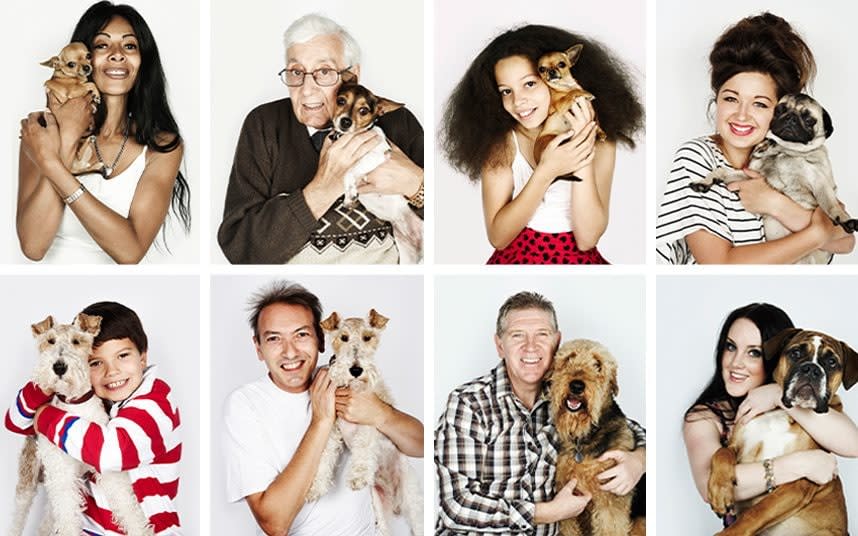
You’re not supposed to pick a favourite from among your family. And yet… lockdown has really brought the characters in our house into relief. I’ve sulked, moped and even, occasionally, raged. We all have. Except for the smallest. He is constantly, ebulliently positive. Ever joyful and loving. Honestly, at times I think he’s kept us all afloat. Which is why I sometimes feel bad that he sleeps in a crate.
Basil is a Cavapoo. We bought him 18 months ago, but it was during lockdown that he really cemented his position as everyone’s favourite. The one we let off steam with in the garden, the one we wrestle our anxiety out with, the one we go to for hugs when we’ve just had enough. And, as anyone who has gone for a walk recently and marvelled at the number of puppies they encounter, we are far from alone.
Google searches for “buy a puppy” increased by 166 per cent after the first lockdown was announced in March, as people suddenly afforded lots of time and nowhere to go suddenly sought canine companionship. According to Kennel Club research, two-thirds of new owners saw their puppy as “a lifeline in lockdown”. However, despite the many bonuses that dogs bring, there are also downsides to the nation going dippy for dogs. On the website Pets4Homes, the average price for a puppy rose from £888 to £1,883, raising fears that illegal and inhumane importations from eastern or central Europe would be encouraged. One-in-four pandemic puppy purchasers did so little research that, they admit, their new family member may have come from a puppy farm.
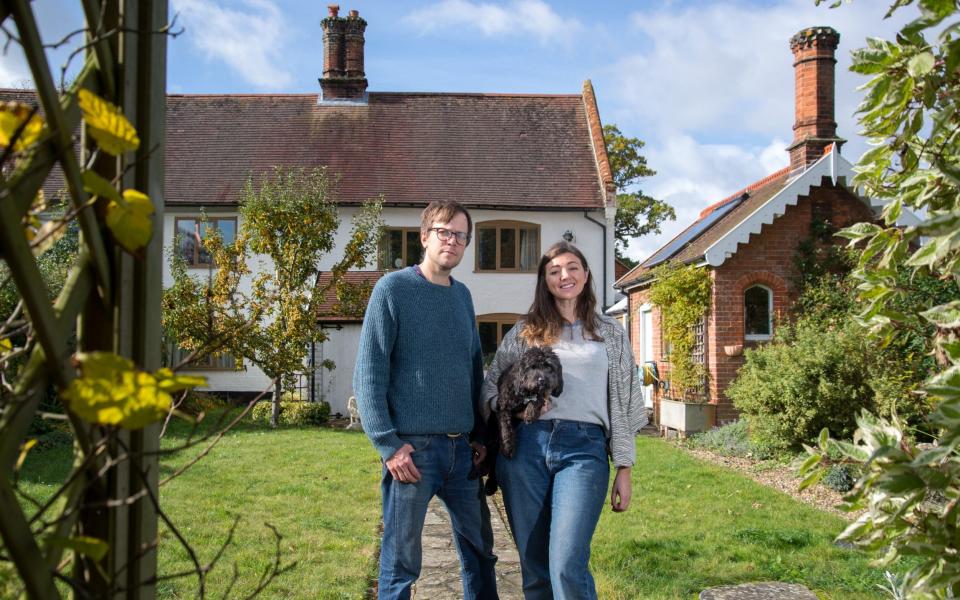
The futures of such animals look precarious too, as past surges in dog ownership have shown us. The financial crash of 2008 resulted in a 26 per cent increase in abandoned pets, says the Dog Trust. The charity predicts that up to 40,000 may now end up stray.
If you are desperate for a dog, and considering whether to take the plunge or not, we would like to help navigate this difficult terrain and help make the right decision, rather than one you may later regret.
The science
“The limited data coming out of lockdown tends to show that people with pets coped better than those without,” says Carri Westgarth, senior lecturer in human-animal interaction at the University of Liverpool. Her own research suggests that just watching a dog run around is a significant stress reliever. Hold on, though. “Research into dog ownership during lockdown is also showing it was a source of stress,” says Westgarth. The pandemic, after all, also brought with it limited access to veterinary care, clashes with other dog walkers over social distancing in parks, and even dogs becoming more attention-seeking or aggressive while living at such close quarters with their owners.
Some of this stress, surely, stems from the scale of our responsibility for our canine companions. A dog will typically live for 10-to-13 years. My six-year-old has learnt to make her own breakfast. Our cat could catch her own while in infancy. Basil’s survival, meanwhile, will depend entirely on us for the duration.
STEP ONE: It's not you, it's me
“We are reminding people that ‘a dog is for life, not just for lockdown’” says Owen Sharp, chief executive of Dogs Trust. “Like Christmas, when people are also at home more, many think now is the perfect time to get a dog. For some, this will be the case, but we’re asking people to consider how your life will need to change to accommodate your four-legged friend when the lockdown lifts.”
To this end, the charity has created a handy checklist. To find out if your lifestyle is really dog-ready, they suggest, ask yourself if you are prepared:
To completely change your schedule (and give up lie-ins).
For more time spent at home or the expense of a dog sitter.
For walks in all weathers.
To devote time to training and games.
To spend money every month on food, treats, insurance and more.
For furniture covered in fur.
To think for two – a night out, holiday or weekend break will all require planning for your pooch.
To be chief pooper-scooper.
Still answering yes? Well, then you might be ready for…
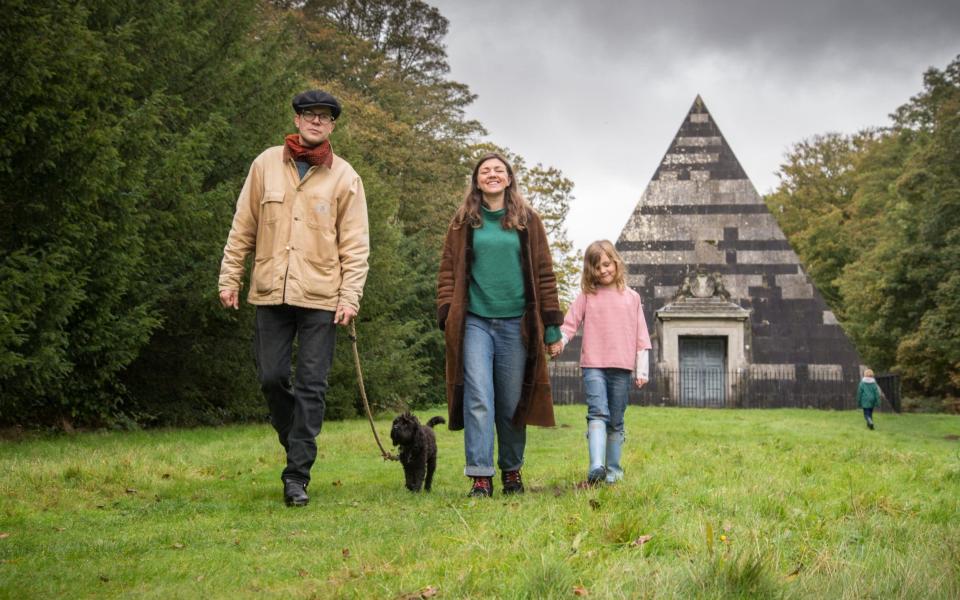
STEP TWO: Searching for your soulmate
Tempted by a breed that looks cute on Instagram? Then step away from social media.
“Puppy buyers should always consider their own lifestyle and daily routine before deciding on a dog breed,” says Bill Lambert, head of health and welfare at the Kennel Club. “City-dwellers in a smaller flat, looking for a dog with moderate exercise could consider a Yorkshire Terrier, whilst exercise-fanatics may prefer a Springer Spaniel.”
There are also, he says breeds particularly well-suited for families with children. Labradors and Staffordshire Bull Terriers: “tend to be patient enough to handle a child’s energy and curiosity, strong enough to handle the way they play, yet gentle with affectionate personalities.”
Whatever your circumstances, it’s really important to do your research to find the best match for you. “Things to think about include gender, size, exercise, grooming, coat, temperament and whether the breed is child and pet-friendly. Try to learn as much as you can about the breeds you’re interested in,” says Lambert.
STEP THREE: Matchmaking
Countless websites will offer to connect you with puppies in your local area. But, as with dating, looking online has its perils.
“Puppy farmers are clever and via the guise of the internet, can disguise horrific breeding conditions,” warns Lambert. It is increasingly difficult to screen them out online, he explains, landing countless unsuspecting buyers with both vet bills and heartache.
Choosing the right breeder is therefore vital. “The Kennel Club Assured Breeder Scheme is one way to find a well-bred and adjusted puppy,” says Lambert. “Breeders on the scheme are regularly inspected to ensure they adhere to certain high standards, and it’s the only organisation accredited by UKAS to certify dog breeders in the UK.” Otherwise, breed clubs, training clubs and local vets are good sources of recommendations.
How can you tell if the breeder you’re talking to is one of the good guys? “They’ll provide the relevant paperwork including health test results for the parents, vaccination records and a contract,” says Lambert. “Expect to be asked lots of questions about your suitability for pet ownership – it shows the breeder cares that their puppy is going to a good home.” Red flags, meanwhile, include refusals to let you see the puppy with its mother, adverts appearing on multiple sites, or a seeming enthusiasm to make a quick sale.
There is, of course, another means of avoiding unethical and unscrupulous breeders. Adoption. “Giving a dog a second chance to have what all dogs deserve, a forever home with a loving family, can be a wonderful experience, for both the dog and for you and we always encourage people to consider adopting,” says Sharp.
Like Battersea Dogs & Cats Home, The Dogs Trust is now matching dogs with their new homes virtually and delivering dogs to their new homes contact-free.
Adopting through a long-established, reputable rehoming organisation also brings assurances: “All dogs in our care are assessed by experts to determine what sort of home is ideal for them,” says Sharp. “Sometimes it can take time to find the perfect match, but we’ll do everything we can to help you find yours and believe there is a dog for everyone.”
Don’t think that adopting a rescue dog is beneath you. A German shepherd named Major, who Joe and Jill Biden adopted from a Delaware dogs home in 2018, will soon become the White House’s first rescue dog.
Once you have brought your new pet home, Battersea and the Dogs Trust both provide lifelong support but all dogs, no matter their age or where they have come from, will require a period of settling in. “We’d always urge new dog owners to set aside some time when dogs first come home and be patient, especially if the dog’s background is unknown or they had a bad start in life.”
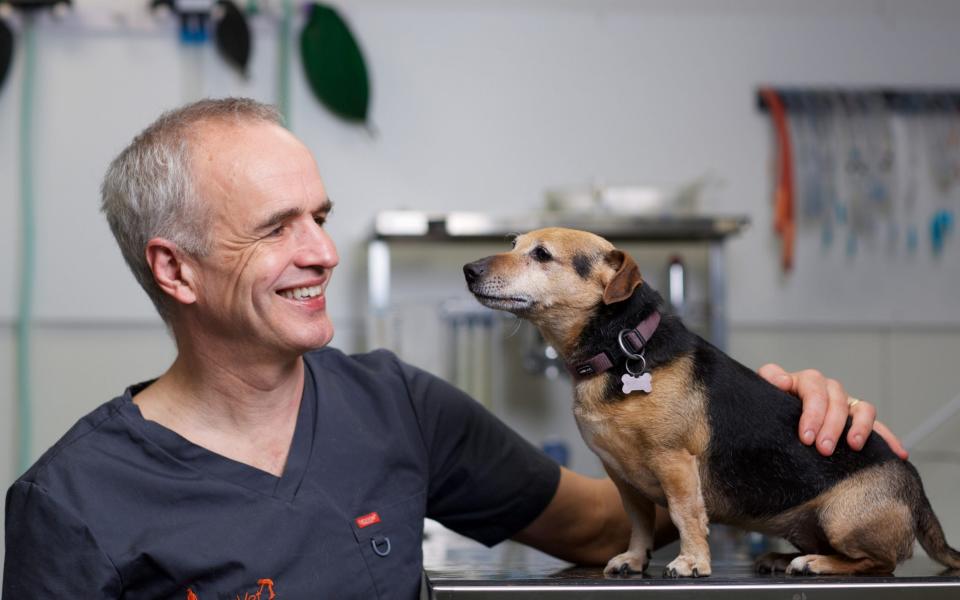
STEP FOUR: The honeymoon phase
Even in lockdown, says Pete Wedderburn, The Telegraph’s resident vet, it is imperative to prepare your dog for the world and routines that he will encounter when things get back to normal.
“I’m a strong advocate of the puppy crate,” he says. “Our dog sees it as her private bedroom. It’s where she goes for peace. It’s not a punishment, quite the opposite. Giving a puppy a base is a really healthy thing.”
Your dog should be able to stand up and lie down comfortably inside his crate, with extra space for bedding and a water bowl. Put it in a quiet part of the house, and gradually build up the time he spends inside it – an especially useful strategy in lockdown because, says Wedderburn: “Probably the single biggest behavioural problem these days is separation anxiety. Lockdown puppies are not used to being alone at all, so when that happens they get hysterically upset. So, get yours used to short periods from the very beginning. Do it when he’s tired and comfortable, after a walk and some food.”
Caroline Wilkinson, animal behaviourist and founder of digital pet coaching service Barket Place, agrees. “If you’re a new dog parent and know you will eventually head back to the office, think about reaching out to local pet professionals now,” she adds. “It will give you time to plan for extra support in those early days back to work. You may need to initially book in multiple visits or walks so that your dog has more frequent contact.”
In the meantime: “try to create a daily structure similar to the one you have at work – for example, a morning walk followed by a few hours with you working in a different room, a lunchtime walk, then an after-work play session.”
Wilkinson suggests sitting on your doorstep, watching the world go by and acclimatising your puppy to sights and sounds like traffic, children and other animals. “Teaching your dog to settle on a specific mat or blanket can be useful practice for when we can return to visiting each other’s homes or dog-friendly pubs and cafés.” she says. “Practise during your own mealtimes or while watching a movie.”
‘After just two months I can’t imagine life without him. He makes me laugh every day’
Emma-Jayne Porteous, 32, lives in London with Brodie, her King Charles Cavalier Spaniel
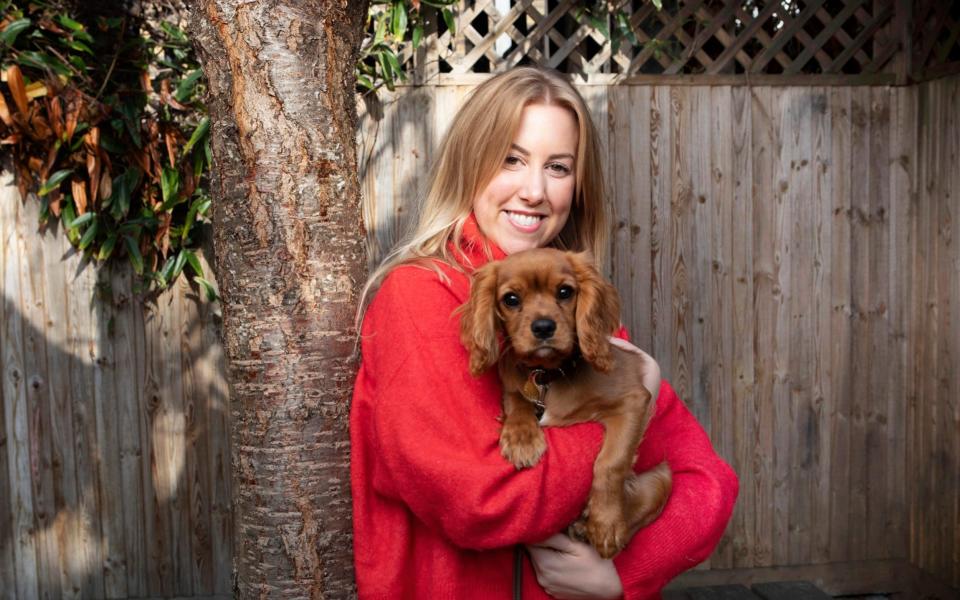
"I live alone so those first weeks of lockdown in the spring were tough. I gave a colleague a hug on our last day in the office, and I didn’t touch another human for six weeks.
So I decided to get a puppy in May. I was really lucky. A breeder in Kent had a litter of spaniels on the way. She owned both the mother and the father so even though I couldn’t meet them, I knew it was all above board.
When the puppies were born I was sent photos and videos and I just knew, immediately, that Brodie was the one for me. We did FaceTime and the breeder shared more photos and then, in September I could finally bring him home.
After just two months I can’t imagine life without him. He makes me laugh every day. Going into this lockdown, I don’t have the same sense of isolation.
Caring for him gives me a focus, and a reason to think about something other than myself and the situation. I love to exercise but now I have a buddy to it with, it’s more enjoyable. People stop and chat to us all the time, which really brightens up my day.
I’ve been careful to go out without him so he gets used to being alone. When I come back, he’s so happy to see me. A waggy tail is the best welcome there is. Dogs see lockdown as something blissful, and that has to rub off on you a little bit too."
To find out more about the different dog breeds out there and their needs, visit The Kennel Club’s Breed A-Z.
Pete Wedderburn says…
The Telegraph’s resident vet, Pete Wedderburn, says: Vets are far more than “accident and emergency departments” for dogs. A close ongoing relationship will help your pet achieve optimal health and longevity. Here’s my essential “to do” list for new dog owners.
Take your new pet to the vet as soon as possible. A thorough physical examination can identify hidden health issues (like hernias and heart murmurs). The sooner you discover these, the better, so that prompt help can be given.
Vaccinations.
Your vet will review any vaccines that have already been given, advising you on what needs to be done to protect your dog from serious viral and bacterial infections, both as a puppy, and later, as an adult.
Parasite control
From fleas to lungworms, a complex assortment of parasites can affect your pet, with the added risk of passing on problems to humans in your household. Your vet is the best source of advice and preventive medication to ensure your dog is kept healthily parasite-free.
Nutrition
There is no single ideal way to feed every dog, but there are many possibilities, from traditional kibble, to heavily marketed but non-science based grain-free products to raw meat diets. All vets are trained in nutrition. They’ll give you good common sense advice on what your pet needsl.
Insurance
Veterinary science can do so much more now than in the past, but this can come with a hefty price tag. Decision making is much easier if you budget for pet insurance at the start, ensuring that the costs of any necessary complex procedures is covered for you.
‘We got a whole new family member out of lockdown’
Marie Holt, 34, lives in London with boyfriend Paul Clavis and their red cockapoo dog Otis
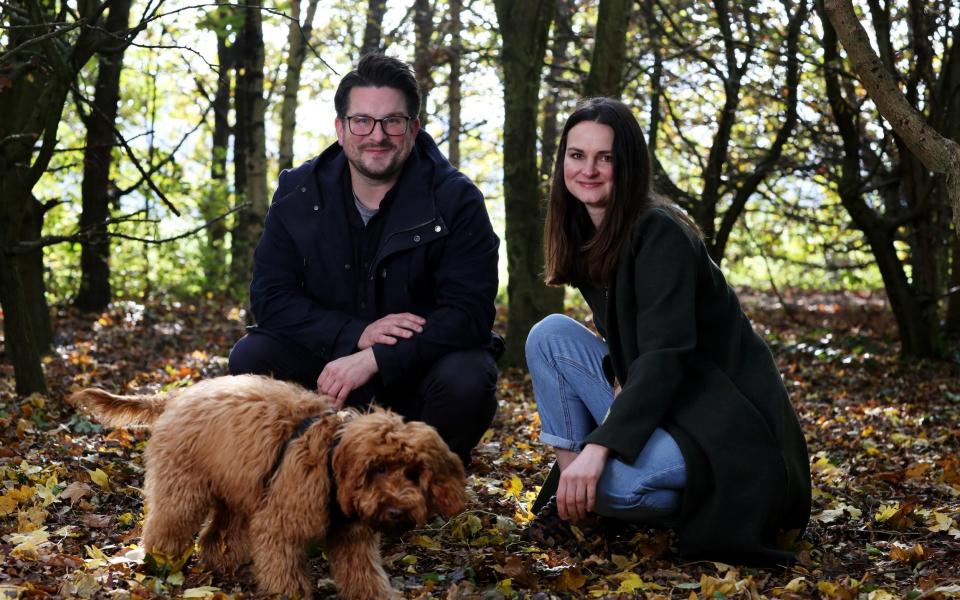
"My boyfriend Paul and I recently bought our first flat so we felt like the time was right for us to get a dog. I work from home full-time running a lampshade business, but we were still hesitating over the big commitment.
But then lockdown hit and we thought: let’s do it. We found a litter of red cockapoos – just what we wanted – and put our name down for one. Then, when they were born, we got a call raising the agreed price by £1,500. We were devastated and had to pull out. But just a few weeks later, we found Otis and he’s perfect. He’s been so good for us both. He forces us to go for long walks every day. And while we walk, Paul and I have the chance to talk in the fresh air away from the distractions of modern life. It’s been wonderful.
Dogs are so good for your state of mind. They always want to play, they’re happy, they give you cuddles and warmth. Every time I look at Otis he makes me so happy. Sure he’s needy because we’ve been around so much all the time, but I’m probably always going to be working at home. And it seems a small price to pay. We got a whole new family member out of lockdown and we are in love!"
‘It was a difficult few weeks at the start, but she’s part of the family now’
Glenn Akester, 27, an IT network architect, adopted Roxy, a miniature dachshund, with his girlfriend Natalie Wallis, 27 during lockdown. They live in Leeds
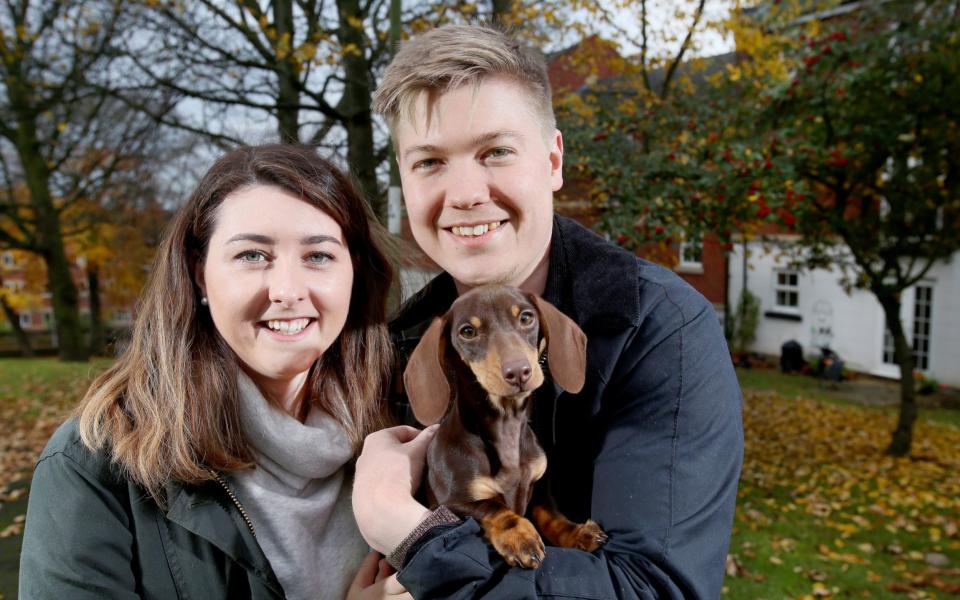
“People want to suggest that everything’s great when they get a dog. I think people are scared to say otherwise. In the first few weeks after we got Roxy, we were tearing our hair out. It wasn’t like we weren’t prepared. We contacted the breeder while the dog was still pregnant, so there was three weeks until our puppy was born and then there’s eight weeks of her growing up with the breeder. In that time I read books and loads of internet resources, watched YouTube videos, made checklists and training plans, but we were still a bit blindsided.
“We had never heard anything like the screams she was making at night. Obviously she’d just been pulled away from everything she’s ever known so we sympathised but we couldn’t calm her down which was very frustrating. But also, all the books discourage you from rewarding their whining with attention.
The couple of weeks were particularly hard because we were waiting for the vaccinations to be done. Until then you can’t take them outside, so there’s a kind of cabin fever. We were shut in the flat because of that and lockdown and it felt like there was no escape.
Charities are expecting lots of lockdown puppies to be abandoned, and it sounds awful, but I can understand it. It wasn’t an instant bonding for us, it took us a good few weeks to actually like her. Natalie had been the driving force behind getting her, but she definitely hit a point where she was thinking ‘what have we done?’
On top of that, we haven’t been able to take her to any puppy classes or get much help which has been tough. We’ve kept at it though and, six weeks in, she’s settled down. Her behaviour has mellowed and will continue to and now I have moments of realising ‘Oh, she’s slept all the way through the night’, or ‘She hasn’t weed in the flat at all today’. And although it was a difficult few weeks she’s part of the family now.”
Interview by Jack Rear
‘Is it reasonable to pay £3000 for a lockdown puppy?’
Claire Morris, 45, lives in London with her husband, cat and nine-year-old daughter
"We started looking for a dog in rescue centres but because we have a child and a cat, offerings were thin. We finally heard about a young dog in early March, but lockdown meant that house visits were banned. Many centres closed. Our emails went unanswered so I started emailing breeders.
I was aware puppy farms are rife with parvovirus and inbreeding, so went through the Kennel Club and in July I was delighted to make the ‘reserve list’ for a litter of cocker spaniel puppies. The catch? Each puppy cost £3,000. I was staggered! Friends had paid between £900 ad £2,000 pre-lockdown. We couldn’t spend £3,000, especially knowing the costs that would come later: vets, checks, training…
Maybe, with the boom in demand, more puppies will be bred next year, but I’m worried that’ll cause a spike in unethical and inhumane treatment too. I don’t want a dog so badly I’d cause harm to another animal."
Pete Wedderburn The Telegraph’s resident vet gives his advice
"There is an expression for people selling pups at such grossly inflated prices: “greeders”. Responsible breeders are continuing to sell puppies at reasonable prices but increased demand means these puppies are snapped up, so you’ll have to be prepared to wait for months.
Visit the Dog Breeding Reform Group website, a charity focused on improving the breeding of dogs in the UK. They’ll point you towards breed clubs with a puppy coordinator who’ll know which pups are in the pipeline. Get your name put on a waiting list.
Local gamekeepers can be a good source, offering friendly, trainable dogs that may be unregistered pedigrees.
If you’re also checking noticeboards and Facebook groups, remember to use the British Veterinary Association/ RSPCA puppy contract and tick all its boxes to ensure you are getting a well-socialised, healthy and ethically bred puppy.
Improve your chances of being considered for a rescue dog by stressing that you grew up with gundogs and the open spaces on your doorstep; that you have already lined up a trainer to help; that the family has read Gwen Bailey’s The Perfect Puppy and researched the best ways to introduce your cat to a dog; that you are not wedded to a pedigree and would consider an older dog."
‘How can we curb our dog’s separation anxiety?’
Emma Scott-Child, 40, lives in Hove with her two children, husband, cat and puppy Taco
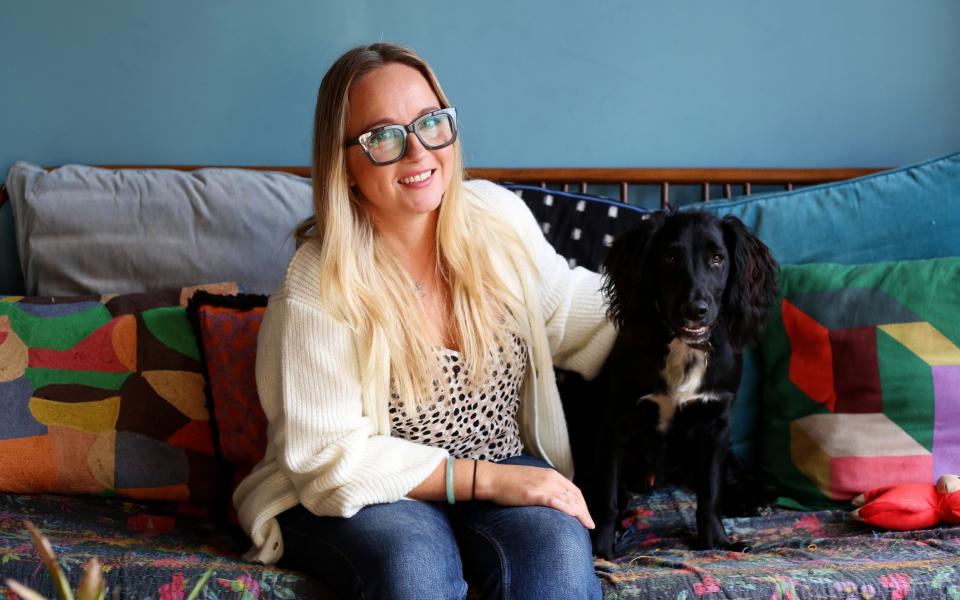
"My husband Tom created a sustainable dog food made from insects called Yora but it wasn’t until lockdown happened that we decided to get the pet we’ve always wanted. When I saw the ad for Taco, our puppy, it had only been up for 15 minutes and the breeder said he’d had 30 inquiries already. Both parents were Kennel Club registered and Tom got to see the puppies with their mum so we knew he was the dog for us.
Taco has become part of the family so quickly. But the first months were made much more difficult by lockdown. My children needed homeschool help and Taco needed non-stop supervision, like a newborn baby on caffeine, with no nappy on and razor-sharp teeth. Fitting in training was tough. We were very conscious of making sure he was well-socialised. He’s now great with most things and people but has an irrational distrust of backpacks!
It’s a problem because we now all leave the house with one each morning, something he didn’t see us do during lockdown. But our biggest issue is separation anxiety. Because he has always been with us, he can’t ever be left alone."
Oli Juste, dog trainer and behaviourist, replies
"To help with separation issues, try to give your puppy some set periods of time during the day when no-one is paying him attention, gradually increasing the time and distance between you. Go into another room, and eventually leave the house. Having access to a food-dispensing toy you’ve previously played with together will allow him to remain cognitively engaged with something else.
Taco’s dislike of backpacks may well be linked to his separation problems. I once had a client whose dog buried his car keys under the flowerbed! I’d use a technique called counter-conditioning. Emma and family should introduce the backpacks while playing with the dog or practice training. With time the bags will be symbolise play and fun, not stress."
Oli’s podcast is A Dog’s Best Friend

